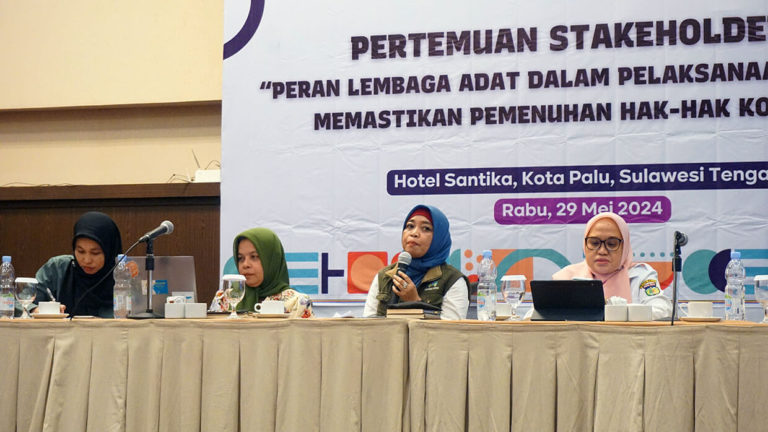On Tuesday, 21 March 2017, Monique Soesman was welcoming the participants of National Meeting on Young People’s Reproductive Health in Hyatt Hotel, Yogyakarta. Here is he speech.
“Boys and Girls
Distinguished delegates,
Ladies and Gentlemen,
Welcome to the National Meeting on “Young People’s Reproductive Health”.
Allow me to start by expressing how pleased I am to appreciate the participation of the Government officials, delegates of civil society groups, and representatives from youth organizations, whose endeavors are essential in supporting and defending young people’s sexual and reproductive health rights.
The technical working group, under the auspices of The National Population and Family Planning Board (BKKBN) and John Hopkins Center for Communication Program (JHCCP), has performed an outstanding partnership in preparing this important meeting. I would like to give our appreciation to the team.
We gather in this occasion because we share our concerns on the state of adolescents’ sexual and reproductive health in Indonesia. A commitment to improve their sexual and reproductive health rights has been pledged in several Indonesian regulations and ventured through many joint programmes. While some progress has been made, the status of young people’s SRHR in Indonesia remains fragile.
One of the latest studies conducted by Rutgers WPF Indonesia suggests there is a significant gap between young people’s knowledge and the actual use of services. Our study indicates that there are multi-level barriers that are experienced by young people in accessing SRH services leading them to only look for services when they have an acute problem like STI, unplanned pregnancy or issues related to sexual violence. So for preventive care like contraception and counseling young people much less likely to access services. Therefor we need to look together for innovative solutions to create awareness and demand and facilitate uptake of contraception
Comprehensive Sexuality Education (CSE) for early adolescents is pivotal to create this awareness and demand and should be given before young people become sexually active. We all know that currently in Indonesia many unplanned pregnancies, after the first shock and shame, are covered up by marriage. When asked a few months prior to the realization of an unplanned pregnancy, many young people will most probably answer that they had planned to abstain until marriage. So instead of maintaining a taboo on sexuality, should we not equip adolescents with the knowledge and skills that enable them to make safe and informed decisions around their sexuality and prevent unplanned pregnancies.
An unequal burden is put on young women and girls. What we really need is to incorporate a gender-transformative approach into CSE. Such an approach creates opportunities for young people to actively challenge gender norms, promote positions of social influence for women in communities, and address power inequities. We should reshape gender relations to be more gender-equitable to enble boys and girls to communicate about wishes and boundaries and the use of contraception. Or in other words, we should foster respectful and healthy relationships, without violence or pressure.
All efforts to enhance young people’s SRH services uptake, including the access to contraceptive will be fruitless, unless we count them as the key actors in every process. Our study on the Meaningful Youth Participation shows that by structurally and meaningfully engaging young people in all phases and levels of SRHR programmes and policy making that target them will amplify the impact. Empowering young people is imperative so they are able to make informed decisions to delay childbirth and become effective users of contraception when their time comes, to stay in school and to achieve better futures.
To all young delegates, the future and the present are yours. Seize every opportunity to speak out your concerns and ideas in this meeting. We are here together, young and old to support young people’s needs and to collaborate together in effective fruitful.
Thank you.”








